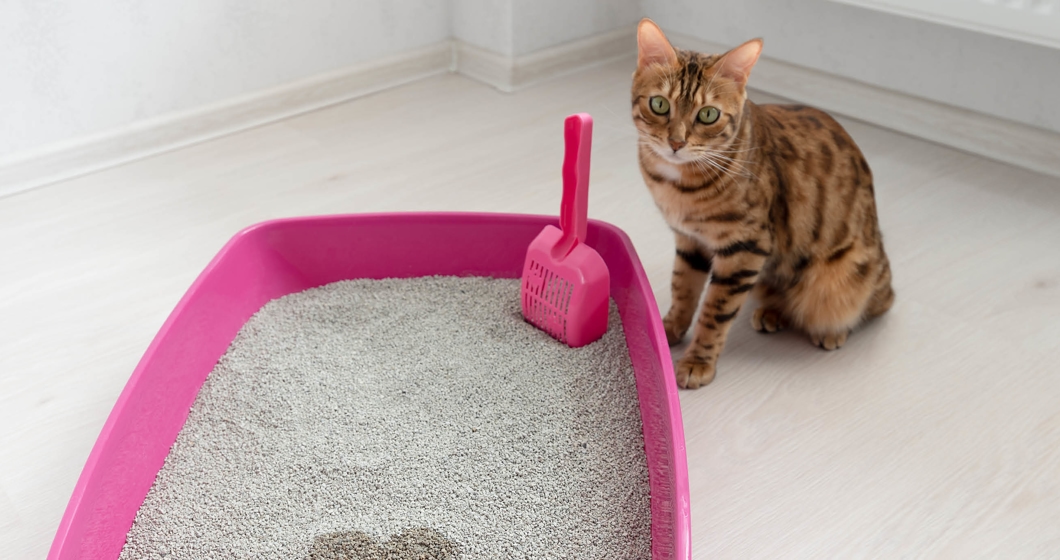Is Your Cat “Poo-Pooing” His Litter Box?
Does your cat tend to use your house as his bathroom instead of the litter box? The problem could be the litter box itself. If your cat is neglecting to use his litter box, perhaps you have been neglecting it too?
Here are some guidelines to follow to be sure you are providing your cat with a proper “potty” so they don’t turn your house into one!
- Provide enough litter boxes – The first question to ask yourself is: “How many litter boxes do I need?” Most cat owners own more than one cat, so that means you will need more than one litter box. Here is a useful guideline to keep in mind: you will need one litter box per cat plus one. So if you have two cats you will need three litter boxes. It is also a good idea if you live in a two-story home to keep one box upstairs and one downstairs.
- Make sure the litter box isn’t too small – If your cat is attempting to go in the box but missing, the issue could be the size of the box. Look for litter boxes that are big enough for your cat to root around and get comfortable.
- Avoid frequent switches in litter – Some cats can be very picky about their litter. If your cat’s improper elimination occurred at the same time a switch in litter occurred this could very well be the cause. Consider going back to the old cat litter to see if this solves the problem.
- Please knock first! – Give your cat plenty of privacy. We don’t like to be interrupted while on the potty, and your cat is no different. Try to position your cat’s litter boxes somewhere quiet, away from the hustle and bustle of household traffic. Your cat will be more comfortable going with a little peace and quiet.
- Keep the litter box CLEAN! – Many cats will stop using the litter box once they believe it to be “full.” If you don’t want to clean the litter box, your cat probably doesn’t want to use it either. Most litter boxes should be scooped once a day and the litter completely dumped and box cleaned weekly to every other week depending on the type of litter that is used.
- Reduce your cat’s stress – You may think your cat is king of his castle, but even minor changes in household routine can be a major stressor to your cat. A new baby, new pet, new sounds, a move, or even a change of schedule in the house could be the culprit. Your cat could be responding to this stress through urinating or pooping in the house. Try to ease your cat into his new surroundings or routine. As your cat begins to feel more secure, the problem will most likely resolve on its own in time.
- Neuter and spay! – If your cat is not neutered or spayed this could be causing the inappropriate elimination. This is especially important with spraying or marking behaviors in your cat.
If none of the above options appear to be affecting your cat, consider the possibility of medical problems. Inappropriate elimination in cats can be caused by a variety of illnesses, including urinary tract infections, cystitis, bladder stones or infections, kidney disease, or even diabetes.
The following are signs that your cat’s inappropriate elimination could be caused by a medical condition. If you notice any of the below items in your cat you should bring them to the vet for a check-up as soon as possible:
- Blood in the urine
- A noticeable increase in the frequency of urination in your cat
- Your cat appears to be straining when urinating
- Urinating on flat surfaces (e.g., the floor)
- Vocalizing while urinating. This could indicate discomfort in your cat during elimination
Resources


